Jerzy Milian Trio - Bazaar, Polish Jazz Vol.17 (1969 Remaster) (2017)
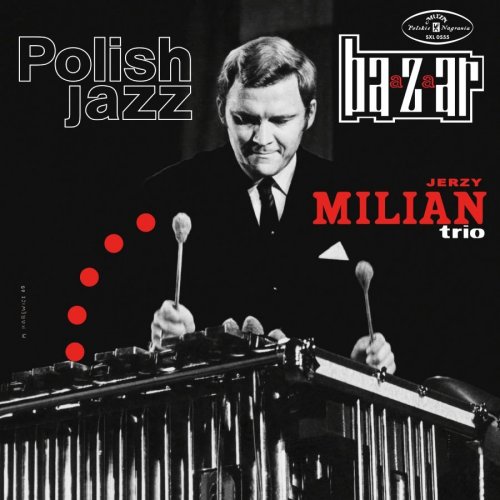
Artist: Jerzy Milian Trio
Title: Bazaar, Polish Jazz Vol.17
Year Of Release: 1969 (2017)
Label: Polskie Nagrania Muza
Genre: Jazz
Quality: FLAC (tracks)
Total Time: 32:58
Total Size: 190 Mb
WebSite: Album Preview
Tracklist: Title: Bazaar, Polish Jazz Vol.17
Year Of Release: 1969 (2017)
Label: Polskie Nagrania Muza
Genre: Jazz
Quality: FLAC (tracks)
Total Time: 32:58
Total Size: 190 Mb
WebSite: Album Preview
1. Memory Of Bach (02:58)
2. My Favourite Band (04:58)
3. Rewelacyjny Luciano (Sensational Luciano) (04:00)
4. Szkice Ludowe (Folk Sketches) (04:04)
5. Tempus Jazz 67 (04:16)
6. Bazar W Aszchabadzie (Ashkabad Bazaar) (05:38)
7. Serial Rag (01:56)
8. Valse Ex Cathedra (05:08)
Personnel:
Jerzy Milian - vibraphone, marimba
Jacek Bednarek - bass, gidjak
Grzegorz Gierłowski - drums
with
Ewan Wanat - vocals (2-5, 8)
Janusz Mych - flute (4)
Jerzy Milian came to the fore as a jazz musician with the Krzysztof Komeda Sextet (Sekstet Komedy) and appeared with Komeda at the 1956 Sopot Jazz Festival and on a 10” LP issued by Muza, Festiwal Jazzowy – Sopot 1956 Kronika Dźwiękowa. (The full performance can be heard on Jazz 56: I Ogólnopolski Festiwal Muzyki Jazzowej, Sopot 1956, a 3CD set released in 2017. Also worth checking out is Jazz 57: II Festiwal Muzyki Jazzowej, Sopot, Gdansk 1957 (2007) which includes seven cuts from the following year’s festival and Komeda Gra Standardy (2009), featuring other performances from 1956 and ’57.) Following the sextet’s break-up, Milian co-led a quintet with Jan ‘Ptaszyn’ Wróblewski and appeared on three Jazz Jamboree discs (1960, ’64, ’65), but it was some years before he got a chance to make his first solo album. Milian, who’d been encouraged by Komeda to switch from piano to vibraphone, had wide-ranging musical interests and his output includes scores for ballet, film and conventional big bands. Although he was attracted to serialism, Third Stream and free jazz, more accessible forms of music are not hard to find and his work has been sampled by younger musicians and anthologised in the Fonoteka series, on Polish Funk Vol. 1 and Cosmic Sounds’ Rare Jazz/Fusion Gems from Polish Vaults Vol. 1. Since 2012, GAD Records has released a number of collections under the Jerzy Milian Tapes heading. He died in March 2018, a fortnight before this entry was written.
Baazaar features his trio, formed in 1966, with guest appearances from two members of the Novi Singers, Ewa Wanat and Janusz Mych (here playing flute). There are the occasional outish spots – most notably ‘Serial Rag’, which is self-explanatory, and ‘Bazar W Aszchabadzie (Ashkabad Bazaar)’, where Jacek Bednarek takes to the gidjak, a long-necked fiddle from central Asia – but listeners accustomed to modern jazz from bop to post-bop should have no trouble accommodating the rest. The opening number, ‘Memory of Bach’, written by Komeda, sounds like something John Lewis might have knocked together in one of his Baroque moods, while Milian’s solo scans a few pages from the Milt Jackson rulebook. ‘My Favourite Band’ has a fast intro and outro but its long central portion is the dreamiest of dreamy lounge jazz with Wanat’s vocal just striking the right insubstantial notes. Milian switches to marimba for the percussive ‘Rewelacyjny Luciano (Sensational Luciano)’ which has Grzegorz Gierłowski laying down a loose rock beat. But, again, the middle portion is different and rather thrilling post-bop. Milian’s openness to music beyond jazz is shown on ‘Szkice Ludowe (Folk Sketches)’, though folk is only one of its components. Wanat sounds much like the great Norma Winstone here and does well to cope with the music’s fragmentary structure, if structure’s the right word. She’s given a steadier time of it on ‘Tempus Jazz 67’, the album’s most famous track and another bout of glorious lounge jazz, with a stunning main melody. Unsurprisingly, it’s been anthologised on both Fonoteka 1 and Rare/Jazz Fusion Gems. The record heads out with the, by now, predictably changeable ‘Valse Ex Cathedra’, where Bednarek’s bowed intro recalls the great David Izenzon. But once the trio and Wanat kick in we have some pleasant toying with blues-bop before Milian dashes off a few abstract flurries to bring it to a halt.
Though clearly a jazz record, Baazaar covers a broad range of musical strategies, sometimes within the course of a single piece. But I don’t get any sense of Milian hedging his bets. Rather, the music’s irregular because it matches the leader’s irregular outlook. Baazaar needs a bit of patience – the listener can come unstuck if they take it all to be like the opening piece: a kind of quasi-MJQ thing. But it is worth it and, at the very least, may spark interest in Milian’s other records. After this one, I’d move on to 1975’s Orkiestra Rozrywkowa PRiTV W Katowicach. If you can find it (it was limited to 500 copies) Milian 80 (2015) samples the years 1956-2004 and provides a useful and entertaining cross-section of his work.
Baazaar features his trio, formed in 1966, with guest appearances from two members of the Novi Singers, Ewa Wanat and Janusz Mych (here playing flute). There are the occasional outish spots – most notably ‘Serial Rag’, which is self-explanatory, and ‘Bazar W Aszchabadzie (Ashkabad Bazaar)’, where Jacek Bednarek takes to the gidjak, a long-necked fiddle from central Asia – but listeners accustomed to modern jazz from bop to post-bop should have no trouble accommodating the rest. The opening number, ‘Memory of Bach’, written by Komeda, sounds like something John Lewis might have knocked together in one of his Baroque moods, while Milian’s solo scans a few pages from the Milt Jackson rulebook. ‘My Favourite Band’ has a fast intro and outro but its long central portion is the dreamiest of dreamy lounge jazz with Wanat’s vocal just striking the right insubstantial notes. Milian switches to marimba for the percussive ‘Rewelacyjny Luciano (Sensational Luciano)’ which has Grzegorz Gierłowski laying down a loose rock beat. But, again, the middle portion is different and rather thrilling post-bop. Milian’s openness to music beyond jazz is shown on ‘Szkice Ludowe (Folk Sketches)’, though folk is only one of its components. Wanat sounds much like the great Norma Winstone here and does well to cope with the music’s fragmentary structure, if structure’s the right word. She’s given a steadier time of it on ‘Tempus Jazz 67’, the album’s most famous track and another bout of glorious lounge jazz, with a stunning main melody. Unsurprisingly, it’s been anthologised on both Fonoteka 1 and Rare/Jazz Fusion Gems. The record heads out with the, by now, predictably changeable ‘Valse Ex Cathedra’, where Bednarek’s bowed intro recalls the great David Izenzon. But once the trio and Wanat kick in we have some pleasant toying with blues-bop before Milian dashes off a few abstract flurries to bring it to a halt.
Though clearly a jazz record, Baazaar covers a broad range of musical strategies, sometimes within the course of a single piece. But I don’t get any sense of Milian hedging his bets. Rather, the music’s irregular because it matches the leader’s irregular outlook. Baazaar needs a bit of patience – the listener can come unstuck if they take it all to be like the opening piece: a kind of quasi-MJQ thing. But it is worth it and, at the very least, may spark interest in Milian’s other records. After this one, I’d move on to 1975’s Orkiestra Rozrywkowa PRiTV W Katowicach. If you can find it (it was limited to 500 copies) Milian 80 (2015) samples the years 1956-2004 and provides a useful and entertaining cross-section of his work.
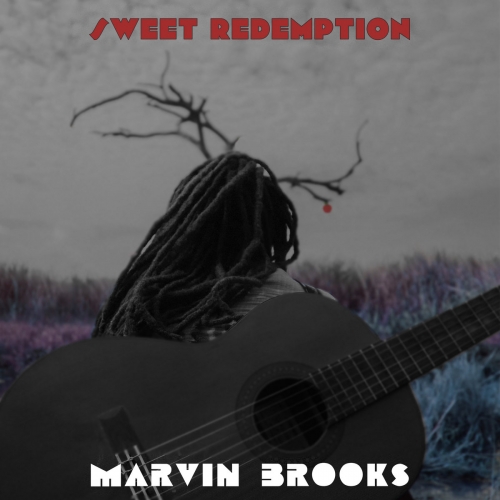
![Turku Jazz Orchestra & Henri Lyysaari - The Labyrinth Garden (2026) [Hi-Res] Turku Jazz Orchestra & Henri Lyysaari - The Labyrinth Garden (2026) [Hi-Res]](https://www.dibpic.com/uploads/posts/2026-02/1770128890_folder.jpg)
![Owelu Dreamhouse - Owelu Dreamhouse (2026) [Hi-Res] Owelu Dreamhouse - Owelu Dreamhouse (2026) [Hi-Res]](https://img.israbox.com/img/2026-02/05/dyetvafic12nz1s9v6zs98erj.jpg)
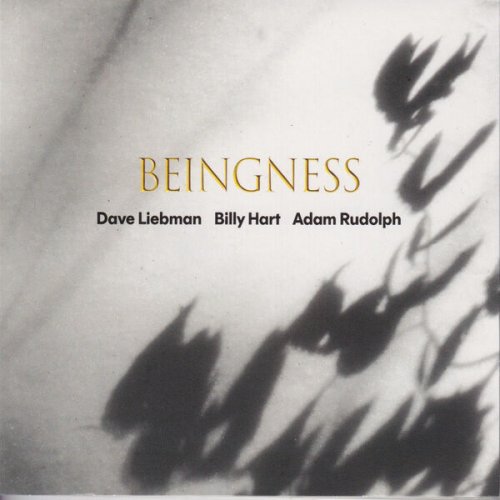
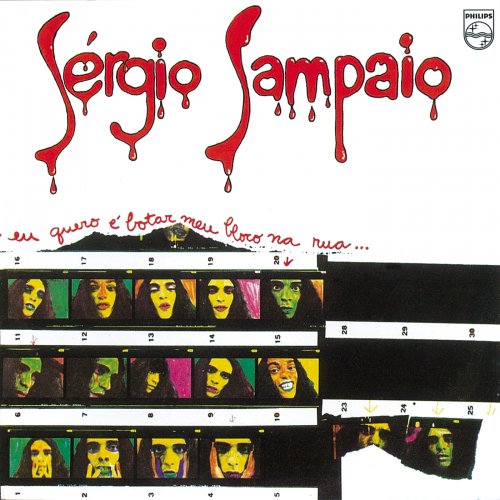
![Cory Wong - Lost In The Wonder (2026) [Hi-Res] Cory Wong - Lost In The Wonder (2026) [Hi-Res]](https://www.dibpic.com/uploads/posts/2026-02/1770057207_cover.jpg)
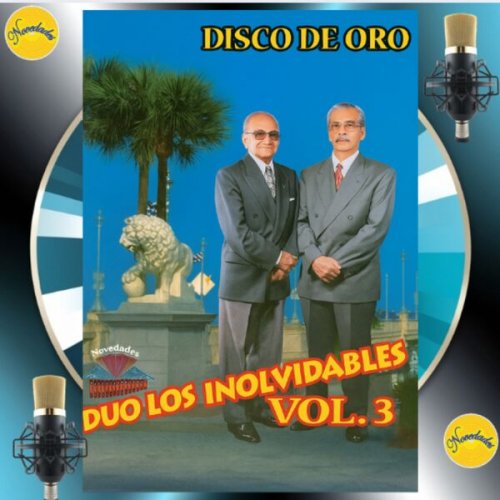

![J. Stafiński & Midnight Band - Jazz To Unwind (2026) [Hi-Res] J. Stafiński & Midnight Band - Jazz To Unwind (2026) [Hi-Res]](https://www.dibpic.com/uploads/posts/2026-02/1770188111_mxijk7n9hl0kt_600.jpg)